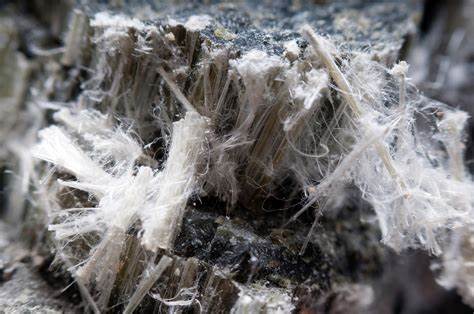WHAT IS IT?
Radon is a gas that occurs in the environment when the radioactive element uranium, breaks down naturally. Uranium exists in exists in all rocks and soil and as a result it regularly and harmlessly escapes from the ground, dissipating in the air. However, when we build homes over rock and trap this gas in an enclosed space, accumulating levels of radon can become a significant health hazard.
 HOW DOES IT GET IN?
HOW DOES IT GET IN?
Most of us are familiar with the term, ‘hot air rises.’ This is something known as the chimney effect and simply means that when air pressure in one area is lower (cold air), it draws like a chimney into an area of higher pressure (hot air). The same principal applies to radon gas, since the pressure inside a home is generally lower that the pressure of the soil and rock surrounding the foundation of the home. This difference in pressure causes the same sort of chimney effect and essentially draws air and gas from the soil through cracks and voids, into the home from any area that has contact with the soil.
WHY IS IT SO DANGEROUS? Radon is preported to be the leading cause of lung cancer in non-smokers and the second leading cause of lung cancer in smokers. It is odourless, tasteless, and insidious as it can creep into our homes without any indication of its presence. Radioactive particles generated by the natural breakdown of uranium can become lodged in lung tissue, releasing radiation that damages the lung cells. Damaged cells have the potential to develop into cancerous cells, with risk increasing based on specific lifestyles (smokers) and years of exposure.
IS RADON A CONCERN IN BRITISH COLUMBIA?
The Okanagan has the greatest concentration of Radon in the province but is it really a concern on Vancouver Island? The honest truth is… it depends on where you live on the Island. According to CDC mapping, the North Cowichan and Saanich District appear to have the highest concentrations of radon on Vancouver Island at 100-200 Bq/m3.
By comparison, many parts of the Interior have levels averaging higher than 600 Bq/m3. Health Canada recommends remediation within a year if radon levels reach 600 Bq/m3, and within two years whenever levels are over 200 Bq/m3. A 2009 study by Health Canada found that while radon levels varied significantly across the country, about 7% of Canadian homes have what are considered to be high levels of radon.
WHAT ABOUT ON VANCOUVER ISLAND?
According to Worksafe BC, “Radon testing of homes is recommended in areas east of the Coast Mountains (e.g. West Kootenay’s, the Okanagan Valley, Northern Interior, North Thompson, and Peace River). Radon testing of homes in the areas west of the Coast Mountains (e.g. Lower Mainland, Vancouver Island, Fraser Valley, Sunshine Coast, and Prince Rupert) is not recommended.
Testing to date in this area indicates that it is very unlikely that any home would have elevated radon levels. While radon levels on Vancouver Island are not generally believed to be a significant threat, testing is the only way to know for sure. A do-it-yourself test is economical, easy to obtain, and might be a good idea if you are anxious about the presence of radon.
HOW TO TEST FOR RADON
Radon levels vary from day to day so any accurate test for radon should take a minimum of 72 hours, with more accurate testing requiring at least a 90-day period. For this reason, we do NOT recommend purchasing a Radon Inspection as part of a Home Inspection. Any radon test that can be completed within the time frame of a home inspection is an inaccurate upselling gimmick offered in order to add revenue to a home inspection fee.
Radon testing can be done easily by the homeowner or by a Certified professional with the Canadian National Radon Proficiency Program. An accredited long-term radon test kit can be purchased from the BC Lung Foundation for $29.99; short-term kits can be purchased from Home Depot for as little as $15, or even borrowed from some public libraries through the Radon Detector Public Library Program. For specific advice, additional information, or referral to an Accredited Radon Professional, please do not hesitate to call our office for assistance from our friendly and knowledgeable booking agents.





